
Shop
NAC (N-Acetyl Cysteine)
$61.23
Consuming adequate cysteine and NAC is important for a variety of health reasons, including for replenishing the most powerful antioxidant in your body, glutathione. These amino acids also help with chronic respiratory conditions, fertility, and brain health.
30 Capsules – 1 Months Supply
DOWNLOAD MORE INFO: NAC-N-ACETYL-CYSTEINE
Description
N-acetyl cysteine (NAC) is a supplement form of cysteine, a semi-essential amino acid. NAC has many health benefits, including replenishing antioxidants and nourishing your brain. NAC is considered semi-essential because your body can produce it from other amino acids, namely methionine and serine. It becomes essential only when dietary intake of methionine and serine is low.
Cysteine is found in most high protein foods, such as chicken, turkey, yogurt, cheese, eggs, sunflower seeds, and legumes.
Comprehensive Guide to NAC (N-Acetyl Cysteine)
**Disclaimer:** The information provided in this document is intended for informational purposes only and is based on existing research. The suggested dosages and benefits of NAC (N-Acetyl Cysteine) are derived from various studies, and it is important to note that individual needs and responses to supplements can vary. Please consult with a healthcare provider to determine the appropriate dosage and use of NAC for your specific circumstances. The references to research studies included in this document are for educational purposes only, and I am not responsible for any health outcomes resulting from the use of this information.
Comprehensive Benefits of NAC (N-Acetyl Cysteine)
- Antioxidant Support:
NAC is a precursor to glutathione, one of the body’s most potent antioxidants. Glutathione helps neutralize free radicals, protecting cells from oxidative damage. This property is crucial for maintaining overall cellular health and reducing the risk of chronic diseases associated with oxidative stress. - Respiratory Health:
NAC acts as a mucolytic agent, meaning it helps break down and thin mucus in the lungs. This is beneficial for individuals with chronic respiratory conditions like chronic bronchitis, COPD, and cystic fibrosis, as it aids in clearing mucus and improving breathing. - Liver Detoxification:
NAC enhances the production of glutathione, which plays a key role in detoxifying the liver from harmful substances, including acetaminophen (paracetamol) overdose, alcohol, and environmental toxins. It is often used in clinical settings to treat acetaminophen poisoning and support liver function in detoxification processes. - Mental Health Support:
NAC influences the glutamatergic system in the brain and has anti-inflammatory properties that can benefit mental health. Studies have shown that NAC may help reduce symptoms of depression, anxiety, bipolar disorder, and OCD. It is also being investigated for its potential role in treating conditions like schizophrenia and substance use disorders. - Immune System Enhancement:
By boosting glutathione levels, NAC strengthens the immune system. This helps the body fight off infections more effectively, making it beneficial for individuals with weakened immune systems or chronic illnesses. - Support in Chronic Conditions:
NAC’s ability to reduce inflammation and oxidative stress makes it helpful in managing chronic conditions. It may benefit individuals with conditions such as polycystic ovary syndrome (PCOS), chronic kidney disease, and cardiovascular diseases by reducing symptoms and improving overall health. - Potential in Fertility:
NAC has been studied for its effects on reproductive health. In women, NAC may improve ovulation and fertility, particularly in those with PCOS. In men, it may improve sperm quality and motility. - Skin Health:
By protecting against oxidative stress, NAC can help improve skin health. It may reduce the appearance of fine lines and wrinkles, improve skin texture, and aid in the healing of skin conditions like acne.
Who Should Take NAC?
Individuals with Respiratory Conditions: Those suffering from chronic bronchitis, COPD, or other lung-related issues can benefit from NAC’s mucolytic properties.
People with Liver Concerns: NAC is beneficial for individuals looking to support liver health, especially those exposed to toxins, alcohol, or medications that strain the liver.
Mental Health Patients: Individuals with depression, anxiety, OCD, or other mental health conditions may find relief with NAC as part of their treatment plan.
Athletes and Active Individuals: NAC can help reduce exercise-induced oxidative stress and muscle fatigue.
Those Seeking Antioxidant Support: Anyone interested in enhancing their antioxidant defenses to protect against chronic disease and aging.
When to Take NAC
Dosage: Research suggests that common dosages range from 600 mg to 1800 mg per day, depending on the condition being treated. However, this is not a medical recommendation, and it is essential to consult with a healthcare provider to determine the appropriate dosage for your needs. [Insert link to research study here]
Timing: NAC can be taken on an empty stomach or with food, depending on personal tolerance. It is often recommended to take it in the morning and/or early afternoon to avoid potential sleep disturbances due to its energy-boosting properties. [Insert link to research study here]
Supplements That Pair Well with NAC
- TUDCA (Tauroursodeoxycholic Acid):
TUDCA supports liver health, much like NAC, making them a powerful combination for detoxification and liver protection. [Insert link to research study here] - Glutathione:
As NAC is a precursor to glutathione, taking glutathione directly can enhance the body’s antioxidant defense system. [Insert link to research study here] - Vitamin C:
Vitamin C is a powerful antioxidant that supports the immune system and skin health. Vitamin C can enhance the absorption and effectiveness of NAC, particularly in boosting glutathione levels. [Insert link to research study here] - Alpha-Lipoic Acid (ALA):
ALA is another antioxidant that helps regenerate other antioxidants like glutathione and Vitamin C. ALA works synergistically with NAC to combat oxidative stress and support overall cellular health. [Insert link to research study here] - Milk Thistle:
Milk thistle is known for its liver-protective properties and helps regenerate liver cells. Pairing milk thistle with NAC enhances liver detoxification and overall liver health. [Insert link to research study here] - Selenium:
Selenium is a trace element that plays a critical role in the body’s antioxidant defense system. Selenium is required for the function of glutathione peroxidase, an enzyme that works with glutathione (which NAC helps produce), making it a valuable addition to an NAC regimen. [Insert link to research study here]
Final Recommendations
Consultation: Always consult with a healthcare provider before starting NAC, especially if you are pregnant, nursing, or taking medications.
Combination Therapy: Consider combining NAC with complementary supplements like TUDCA, glutathione, or milk thistle to maximize its health benefits. NAC is a versatile supplement with a wide range of benefits, particularly for those looking to enhance their antioxidant defenses, support liver health, and improve respiratory and mental health.
Additional Information
| Weight | 0.1 kg |
|---|---|
| Dimensions | 20 × 7 × 20 cm |
Reviews (0)
Only logged in customers who have purchased this product may leave a review.




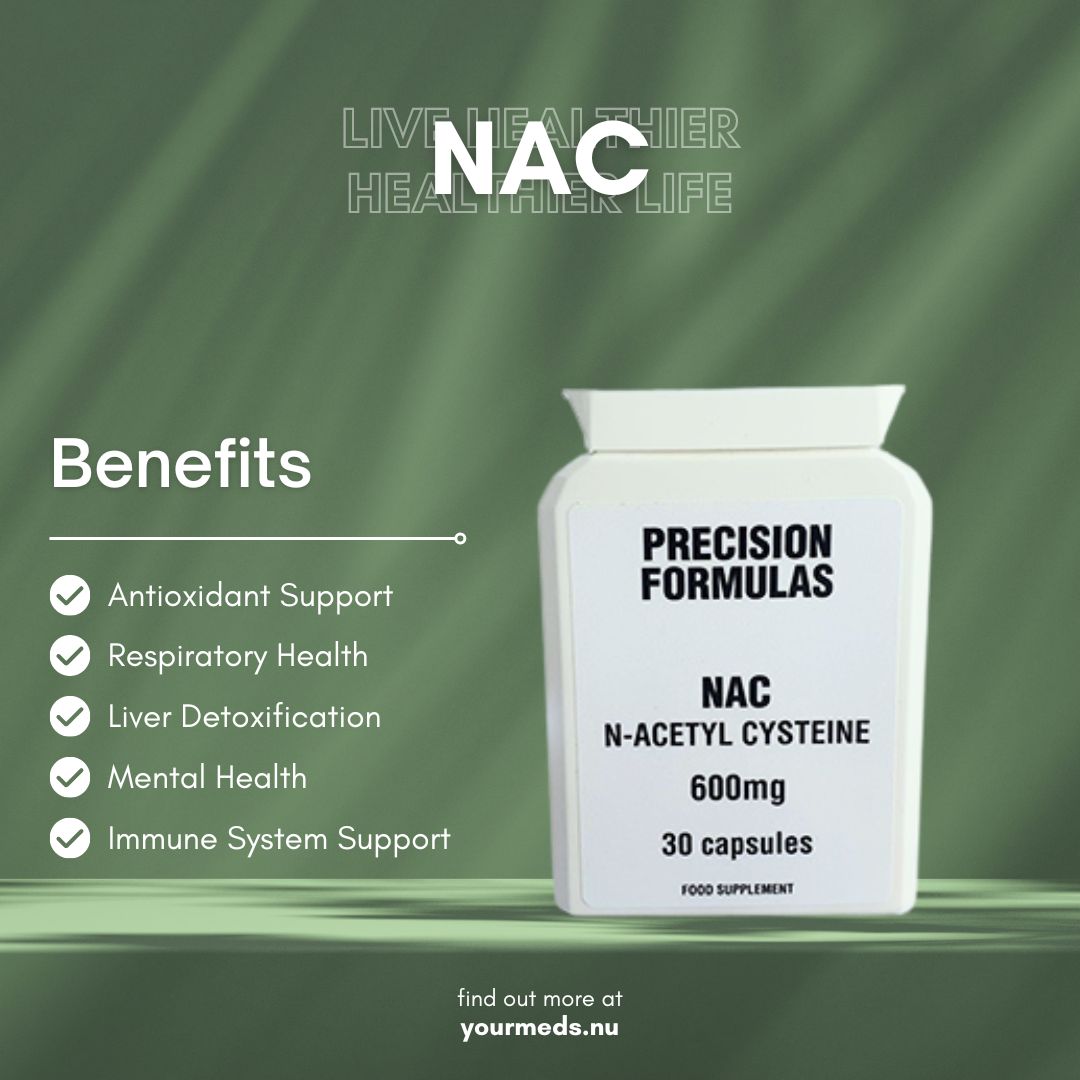
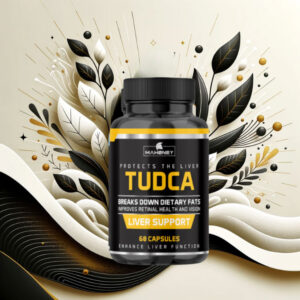
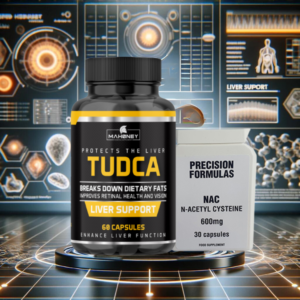
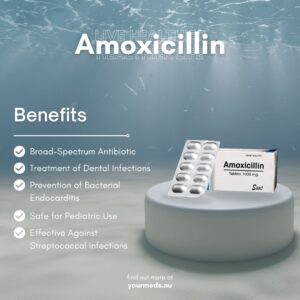
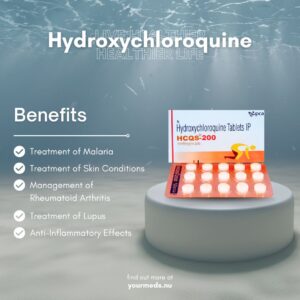
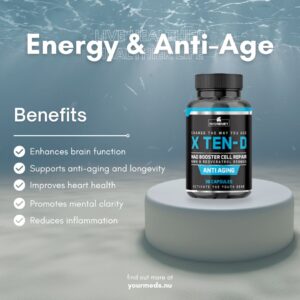
Reviews
There are no reviews yet.